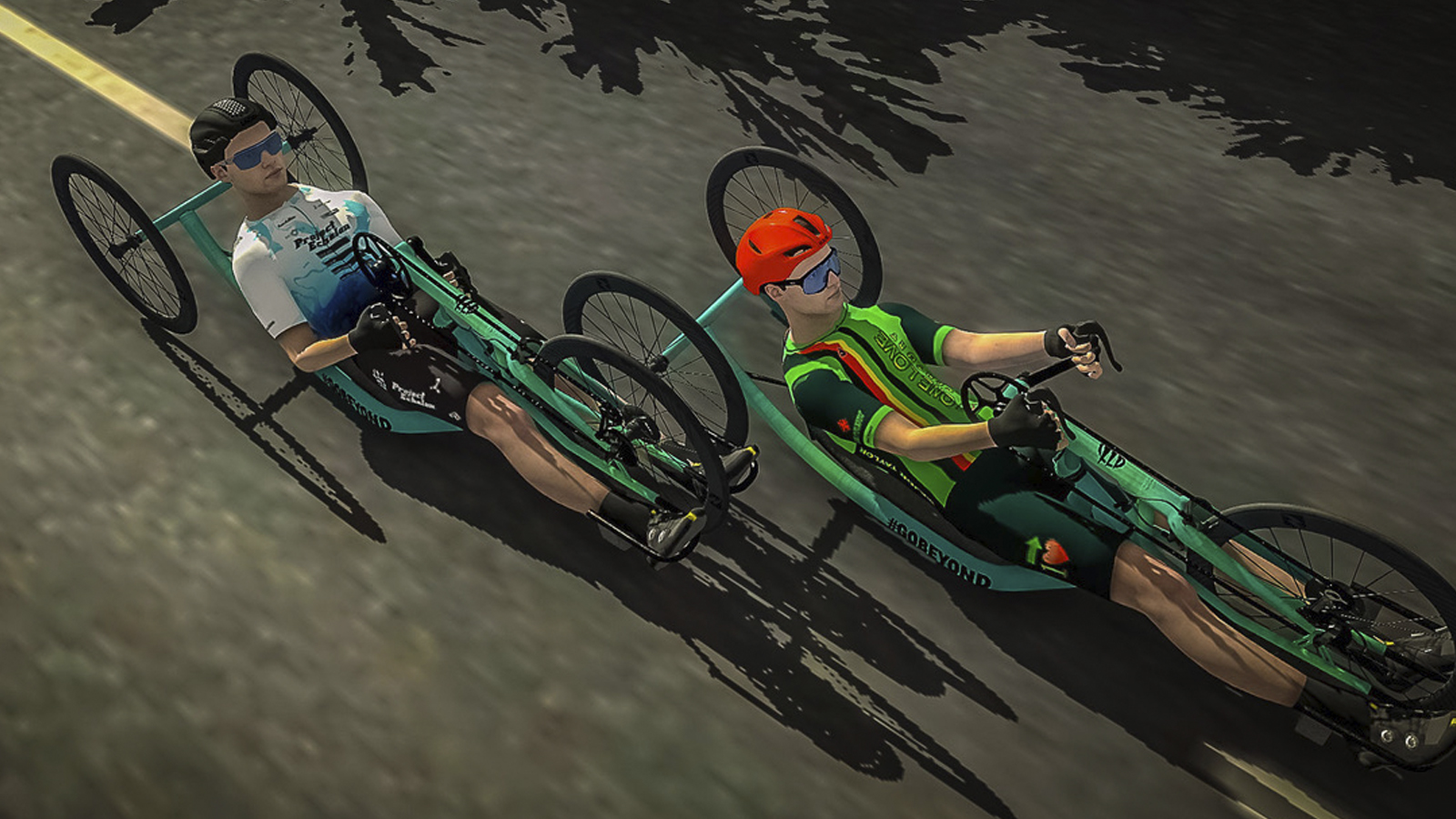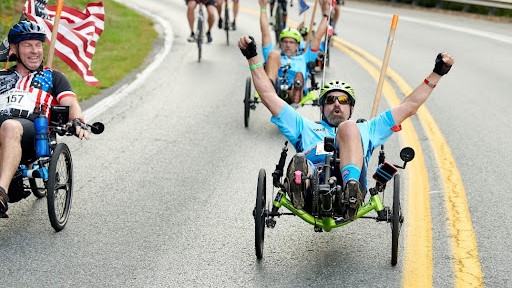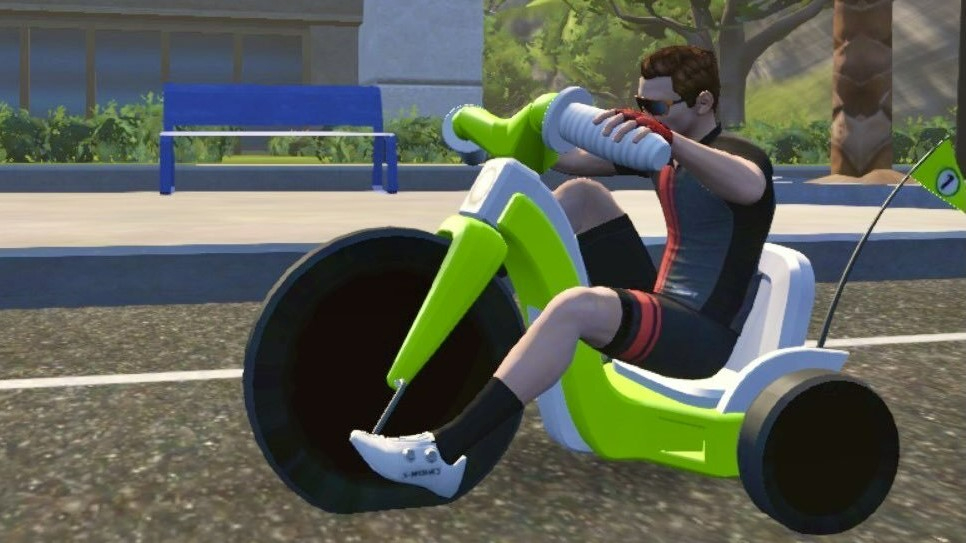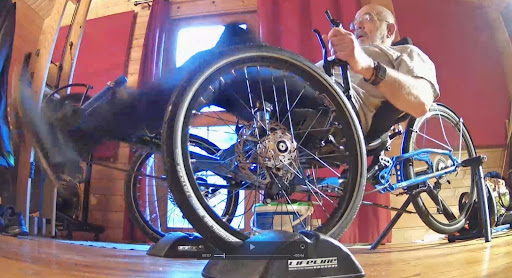Zwift to add Adaptive Athlete Representation to the platform
The indoor cycling app commits to true-to-life equipment and avatar integration but has not committed to a deadline
Adaptive and disabled athlete accessibility, inclusion, and representation on Zwift has been a prolonged topic of interest and debate, both within the organisation and among the community.
Zwift's head of PR and DEIB Inclusion Council member (diversity, equity, inclusion and belonging), Chris Snook, acknowledges the current lack of representation when he says, "We understand that from the outside this is frustrating. It is definitely a priority with plenty of internal support from staff across the business. The aim is to deliver an equitable solution for all athletes living with a disability."
While absent on Zwift, rival platform RGT Cycling has led the charge for inclusion of disabled athletes in virtual cycling, proving it is far from an impossible task.

Zwift conducts internal research
Internally Chris Snook and Zwift have partnered with the Challenged Athletes Foundation (CAF) to conduct a research study examining the needs of athletes with disabilities in the virtual cycling community.
The study's findings will guide Zwift's next steps, according to Snook. "There are many different types of disability, and not all are visible," he says. "For us to take the most equitable approach to improve access and representation for those with disabilities, it was important to understand the needs of all riders on the platform, taking into account all disabilities represented."
The body of research will focus on in-game hand cycles, trikes, and representation of amputees through avatar customisation, with further work looking to accommodate less visible disabilities in the virtual space such as visual impairment, as well as how adaptive athletes would use the platform.
Zwift's work to support and represent the disabled community is a priority but, as with many issues, it's never simple. The study will range from how adaptive athletes use the platform to how the platform can improve accessibility and promote representation more generally. The outcome will assist Zwift to form its product recommendation, but progress has been slow for those impacted.
Get The Leadout Newsletter
The latest race content, interviews, features, reviews and expert buying guides, direct to your inbox!

Small steps but heading in the right direction
Almost a year has passed since Snook and Zwift were contacted regarding Adaptive Athlete representation. During that time, the company has appointed a Senior Director of Diversity, Inclusion, and Social Impact, has pioneered the industry in multiple related initiatives, and Zwift's Eric Min was named one of the "Best CEOs for Diversity."
Even before being approached, this issue of disabled inclusion dates back several years on many Zwift forums, and a recent Zwift tweet stated, "It's something we are researching, and we want to be as inclusive as possible, and we want to execute it well."
Despite the assurances from Zwift, the adaptive athlete community feels neglected, and that in this case, perfect is becoming the enemy of good.
As mentioned earlier, advocates for adaptive inclusion regularly point to RGT cycling as an example of what can be achieved, who took a significant step by hosting a virtual event dedicated to handcyclists and creating the first virtual handcycling bike with lifelike avatar integration.

To make matters worse from the point of view of adaptive advocates, on 1 April, 2021, Zwift marked April Fool's day by equipping every rider with a big wheel trike to use in-game. This begs the question; if it's possible to roll out a comedy tricycle for every user for April Fools day, what is holding up the development of a handcycle option? In retrospect, Snook agrees as he looks to move forward and states, "Its use was unsympathetic and a mistake, and for this, we apologise for the hurt and frustration this caused."
Representation is coming, but when?
In response to criticism on this issue, Zwift states that it's heard the collective Adaptive Athlete voice and is committed to change, on the report Snook. "Zwift is focused on impact at scale, smaller companies can move faster than Zwift for certain features, but these may not have the desired impact or outcome to effect lasting sustained change. We aim to improve accessibility and inclusiveness for the most people with the biggest Diversity, Equity, Inclusion, and Belonging (DEIB) impact. This work is focused on many different areas, including localisation because we believe accessibility promotes inclusivity."

Zwift is aware of Adaptive Advocacy Month and its grassroots effort to raise awareness on the platform. "We are aware of the movement and are tracking the progress," notes Snook. "The approach is commendable, and we want them to know we are listening."
Despite stating the work is a priority, there was a lack of commitment to a hard deadline. "I'd love to give you more than a 'coming Zoon' but I'm not in a position to be able to promise when this will come."
A physical therapist with over 25 years of experience, Christopher Schwenker is on a journey to give back to the cycling community for rewarding experiences and fulfilling relationships through the pages of his virtual cycling blog, The Zommunique’, and his cycling-related non-profit, The DIRT Dad Fund.